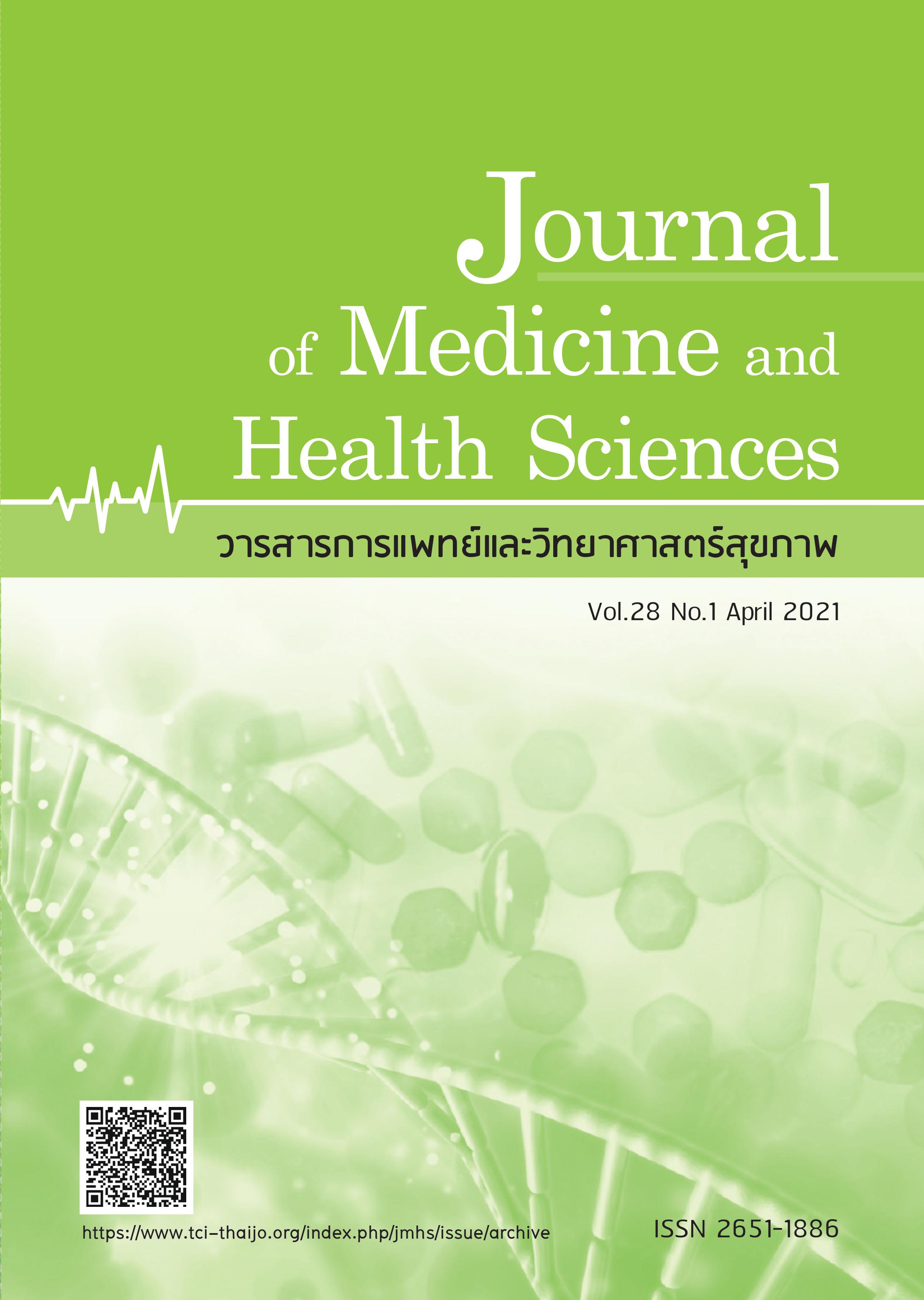Overview of longitudinal data, limitations, and appropriate alternatives of statistical methods: Longitudinal data analysis in health science research
Keywords:
longitudinal data, longitudinal data analysis, correlated dataAbstract
Currently, health problems have been complicated and associated with various factors over time, studies which assess the outcome at a single point in time and independence which may be limited or not good enough. Therefore, longitudinal data, which measures outcomes repeated at multiple points in time and play a role and are a challenge in terms of correcting and appropriating of longitudinal data analysis by the researcher. The objectives of this article would like to present basic longitudinal data analysis; including the meaning and scope of the longitudinal data, the characteristics of correlating data, the limitations and effects of using existing statistical methods with longitudinal data, as well as appropriate statistical methods to analyze longitudinal data, including change score analysis, repeated measures ANOVA, generalized estimating equation, and mixed effects models. To make a decision of selecting a method, researchers should consider several issues based on the research questions, assumptions, and the limitations of the data and each of the statistical methods.
References
Rep 2017;2:1-14.
2. Arnold KF, Davies V, de Kamps M, et al. Reflections on modern methods: generalized linear models for prognosis and intervention—theory, practice and implications for machine learning. Int J Epidemiol 2020;0:1-9.
3. Caruana EJ, Roman M, HernándezSánchez J, et al. Longitudinal studies. J Thorac Dis 2015;11:E537-E540.
4. Oosterhoff M, Joore MA, Bartelink NHM, et al. Longitudinal analysis of health disparities in childhood. Arch Dis Childh 2019;8:781-8.
5. Newman AB. An overview of the design, implementation, and analyses of longitudinal studies on aging. J Am Geriatr Soc 2010;Suppl 2:S287-91.
6. Andersson C, Johnson AD, Benjamin EJ, et al. 70-year legacy of the Framingham Heart Study. Nat Rev Cardiol 2019;11:687-
98.
7. Locascio, JJ and Atri A. An overview of longitudinal data analysis methods for neurological research. Dement Geriatr Cogn Dis Extra 2011;1:330-57.
8. Ybema JF, Evers MS Scheppingen, ARv. A longitudinal study on the effects of health policy in organizations on job satisfaction, burnout, and sickness absence. J Occup Environ Med 2011;11:1251-7.
9. Huang CJ, Lin CH, Hsieh HM, et al. A longitudinal study of healthcare utilisation and expenditure in people with type 2 diabetes mellitus with and without major depressive disorder. Gen Hosp Psychiatry 2019;50-8.
10. Liu C, Cripe TP Kim MO. Statistical issues in longitudinal data analysis for treatment efficacy studies in the biomedical sciences. Mol Ther 2010;9:1724-30.
11. Lee JH, Herzog TA, Meade CD, et al. The use of GEE for analyzing longitudinal binomial data: a primer using data from a tobacco intervention. Addict Behav 2007;1:187-93.
12. Ma Y, Mazumdar M Memtsoudis SG. Beyond repeated-measures analysis of variance: advanced statistical methods for the analysis of longitudinal data in anesthesia research. Reg Anesth Pain Med 2012;1:99-105.
13. Park E, Cho M Ki CS. Correct use of repeated measures analysis of variance. Korean J Lab Med 2009;1:1-9.
14. Pekár S, Brabec M. Generalized estimating equations: A pragmatic and flexible approach to the marginal GLM modelling of correlated data in the behavioural sciences. Ethology 2018;2:86-93.



